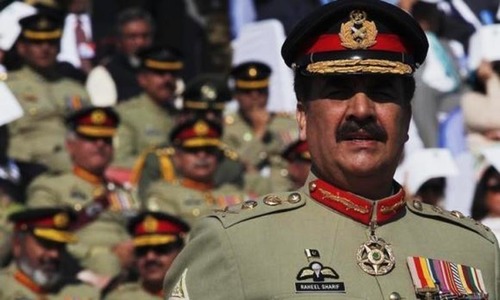Cold Start was supposed to be a non-starter. At least that is what India’s political and military leadership had claimed ever since the doctrine was mooted by the Indian military, ostensibly as a means of retaliation against Pakistan in the eventuality of a terrorist strike in India.
But the newly installed Indian army chief, Gen Bipin Rawat, has made an astonishing claim: not only has Cold Start been doctrinally embraced by India, but the country has the military capability to implement it if a political decision to launch such strikes is taken.
At a stroke, Gen Rawat has infused strategic uncertainty into the Pakistan-India military equation, one with potentially far-reaching consequences.
Cold Start by its very nature is a destabilising doctrine — it presupposes that India can cross the international border, temporarily hold Pakistani territory and launch punitive military strikes against military and militancy targets without triggering a general conflict.
Odd — and dangerous — as that presumption is, the very act of India articulating a theory of Cold Start had a real and immediate impact: Pakistan chose to expand the size and range of its nuclear arsenal.
Policymakers here, knowing that Pakistan could not hope to compete with an India determined to vastly expand its conventional military capabilities, made what is arguably the only realistic decision — investing in so-called tactical nuclear weapons to lower the nuclear threshold and so thwart Cold Start.
Yet, the logic of endless military response and counter-response can quickly unravel. India, in ostensibly seeking to deter terrorist strikes, drew up a war doctrine that posed a potential threat to the territorial integrity of Pakistan.
In response, Pakistan developed a range of nuclear weapons that will pose a theoretically insurmountable barrier for any Indian policymaker seeking military aggression against Pakistan. But the Pakistani response did not, as Gen Rawat’s assertions made clear, deter India from pursuing its foolhardy strategy.
Inevitably, that will harden military opinion about India inside Pakistan — and, tragically, it may tempt an Indian leadership armed with massive funds to find new ways to put strategic military pressure on Pakistan.
The cycle may seem like it can continue indefinitely, but more likely one or the other side will make a catastrophic misjudgement. The only rational response to ever-escalating military strategies is for both countries to seek dialogue and address the core concerns of the other.
Strong militaries and robust war strategies may be necessary, but so is an unshakeable commitment to peaceful resolution of all disputes.
Published in Dawn January 14th, 2017














































